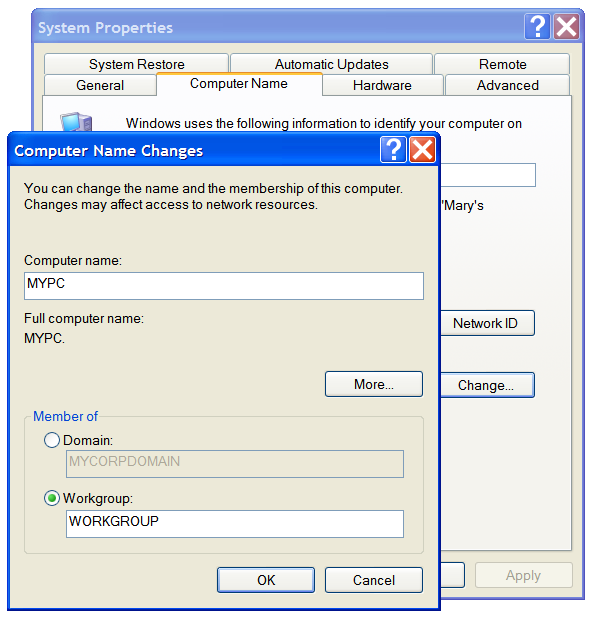
- Cache user credential on mac for windows domain update#
- Cache user credential on mac for windows domain full#
- Cache user credential on mac for windows domain windows 10#
- Cache user credential on mac for windows domain password#
I am much better with hardware, and I don't have a lot of experience with Server, so please bear with me if I didn't phrase the question correctly.
Cache user credential on mac for windows domain full#
While this guide focuses on Windows 10, Credential Manager has been available for a long time, which means that the steps will also work on Windows 8.1 and Windows 7.I became our business' "IT guy" after the position was downsized after our last full time IT specialist left, but it is not my main job. Once you complete the step, your device’s credentials for sites, apps, and networks will restore.
Cache user credential on mac for windows domain password#
Type the password to unlock the Credential Manager backup. To restore your sign-in information from backup on Windows 10, use these steps: Restore sign-in information using Credential Manager
Cache user credential on mac for windows domain windows 10#
crd file containing all your Windows 10 and web credentials that you can import to another computer or to the same device after a clean installation. Specify a password to protect the Credential Manager file on Windows 10.Īfter you complete the steps, you’ll end up with a. Use the Ctrl + Alt + Delete keyboard shortcut to continue.

To export and backup all your credentials for apps and networks, use these steps:Ĭlick the Browse button to specify a destination for the backup. Backup sign-in information using Credential Manager Once you complete the steps, the new account information will be added to your device to sign in automatically the next time you access the apps or network shared. Specify the username and password to authenticate. Specify the internet or network address corresponding to the app or network resource. To add an app or network credential on Windows 10, use these steps:Ĭlick the “Add a Windows credential” (or “Add a certificate- based credential”) option. Add new sign-in information using Credential Manager To delete an account credential already stored on Windows 10, use these steps:Īfter you complete the steps, the account credentials will no longer be available on the device, meaning that future logins will require you to enter a username and password.

Cache user credential on mac for windows domain update#
Once you complete the steps, the information will update with the new credentials, which means no more login prompts if you initially saved the wrong username or password or changed the sign-in information.ĭelete sign-in information using Credential Manager Update the username and password as necessary.

To update a password or username already stored on Windows 10, use these steps:Ĭlick the Windows Credentials tab (or Web Credentials).



 0 kommentar(er)
0 kommentar(er)
